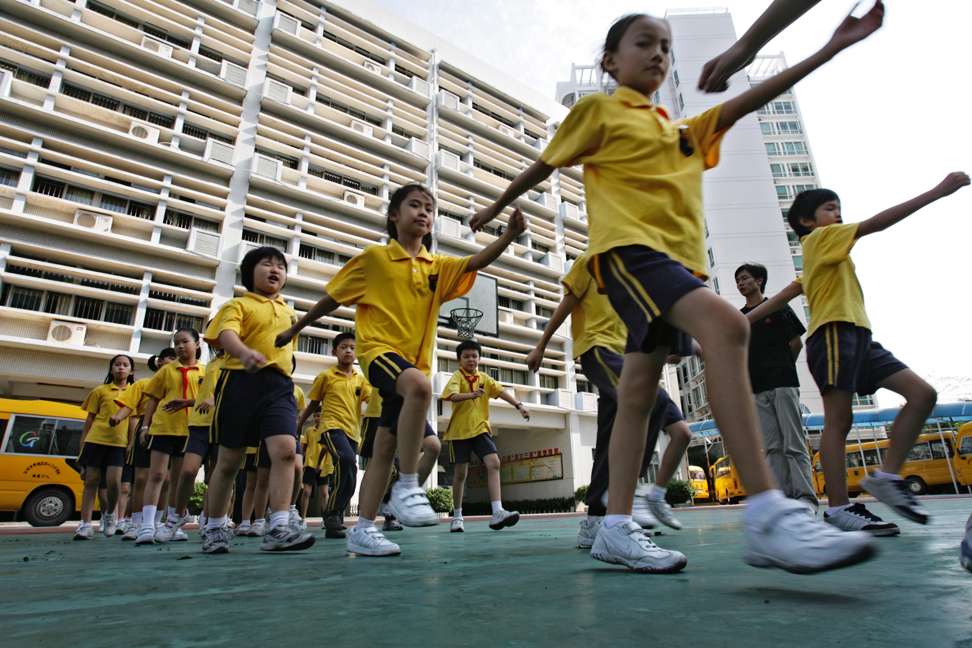
Shenzhen authorities allow Hong Kong-born children of mainland Chinese parents to apply to study in border city even without hukou
Revision to Shenzhen rules might take pressure off Hong Kong education system, but parents worry if their children will get into best schools
Children born to mainland Chinese parents in Hong Kong will be eligible to apply to Shenzhen public primary schools even if they do not have a mainland household registration.
The announcement by the Shenzhen Education Bureau on Thursday might ease pressure on Hong Kong by reducing the number of cross-border pupils, but parents are worried that their children might not be able to get into popular public schools in Shenzhen.
According to the announcement, students from Hong Kong and Macau, together with others whose household registration or hukou is outside Shenzhen, can apply for the city’s public schools through a point system from the middle of this month.
But there was no mention of whether a quota would be set for children born in Hong Kong.
Hong Kong-born children were once allowed to study in Shenzhen’s public schools, but the policy was shelved in 2012.
Education minister Eddie Ng Hak-kim welcomed the move, saying the Hong Kong government would ask for further details about the administrative procedures required for applications.
Over 202,000 children were born in Hong Kong to mainland parents between 2001 and 2012 before the government put a stop to mainland women giving birth in local public and private hospitals. Such children obtained Hong Kong permanent resident status.
Facing expensive private school fees in Shenzhen, many parents of these children chose to send them to free public schools in Hong Kong, which has increased pressure on the local education system.
Students applying to study in Shenzhen will be graded on a 100-point scale based on factors such as the type of hukou, housing and the employment status of their parents.

Coco Li, a mainland mother whose daughter was born in Hong Kong and is now a Primary Three pupil in Sheung Shui, said the policy showed a change of attitude towards the rights of this group of children.
“Now children are given an option,” said Li, who owns a flat in Shenzhen. However, she questioned whether Hong Kong-born children could get into better schools under the point system.
“She might be sent to a poorer school or one that is further away,” she said.
Paul Yip Siu-fai, a University of Hong Kong professor specialising in population policy, said there could be less competition for local school places, but the government still had to ensure resources for education would not shrink as a result of fewer students.
Liu Cheung-hin, principal of the Luohu School for Hong Kong Children in Shenzhen, said he was not worried about fewer students applying to his school under the new arrangement.
He was confident as his students were taught at a higher English level under a Hong Kong-based curriculum.
He also said they could apply to Hong Kong secondary schools directly under the government’s school places allocation system.


